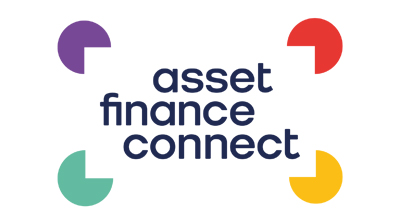The Legacy Funding Corporation (LFC) was founded in 2011 by Peter Collins, a well-known City Insurance Broker, to offer liability insurance to the trustees of the major charities. Trustees can incur increasing personal liabilities as part of their widening legal responsibilities.
John Lutterloch (pictured) recently joined the board to widen the business offering to include financial services. Lutterloch is a respected industry veteran. He formerly held senior positions at Industrial Bank of Scotland, Security Pacific Leasing (Europe), Baltic Leasing and for five years managing director at GE Capital’s Northern European operations. In1994 he formed Industrial Investment Group; and is currently a director of Ablrate, the newly-formed peer-to-peer asset lender.
He told Asset Finance International: “It is estimated that there is around £2 billion of monies owing to charities at any one time under legacy arrangements.
“When our executive team met with the directors of the leading charities one of their main concerns was the time it takes between the notification of a legacy and the receipt of funds.
“This in turn has consequences whereby certain charity projects have to be slowed down and, in a number of cases, people having to be made redundant. This often leads to a knock-on effect of charity shops being shut and hospice projects being deferred.”
The Legacy Funding scheme, which is backed by selected UK banks, offers charities the opportunity to draw down 70% of the stated legacy by way of a promissory note once the probate and the legacy announcement has been made and monies can very quickly be directed to enable them to continue funding their projects.
Finance directors of charities have recently been informed of the launch of this service through a direct marketing campaign.
Time and value of money
Charities are invited to contact LFC who will work closely with the law firm – or the counsel dealing with the probate - to ensure that all the documentation and the rules of engagement are correct.
Lutterloch added: “Before the monies are advanced, the solicitor gives an undertaking that when the estate is finally settled that monies go firstly to pay off the promissory note and then the balance goes to the charities. But, of course, the charities have the time and value of the money in that period.”
How quickly do charities receive the funds?
Lutterloch stressed that it a very quick process. Once the charity has agreed that it would like to accept the service LFC estimates it will take less than 14 days before the funds are actually paid to the charity.
Occasionally wills are subject to dispute or even fraud. “However, these are a very small proportion of the whole,” he added. “Usually when family members are unhappy with the results of a more recent will, a judgment will be taken by the charity, and also by us and the bank’s underwriters, that this is a sound probate case – and it invariably goes through in a straightforward manner.”
The benefits for a charity under the legacy funding scheme are self-evident. The charity receives the funds usually some 18 months before they would normally do so, allowing it to continue with its good work uninterrupted knowing that the funding will be made good when the estate is finally settled.
Lutterloch commented; “We also believe that it is good for the UK economy, because it means that charity work can continue and charity staff continue to be employed. In fact, we have already met with the government’s ‘Civil Society’ department to confirm whether the government agreed that this was a worthwhile funding project – and it was extremely keen to support it.”
He added: “If you think about the fact that some of the good works in the past have had to be slowed down because of lower donations to charities – we see this as a very valuable contribution.”








